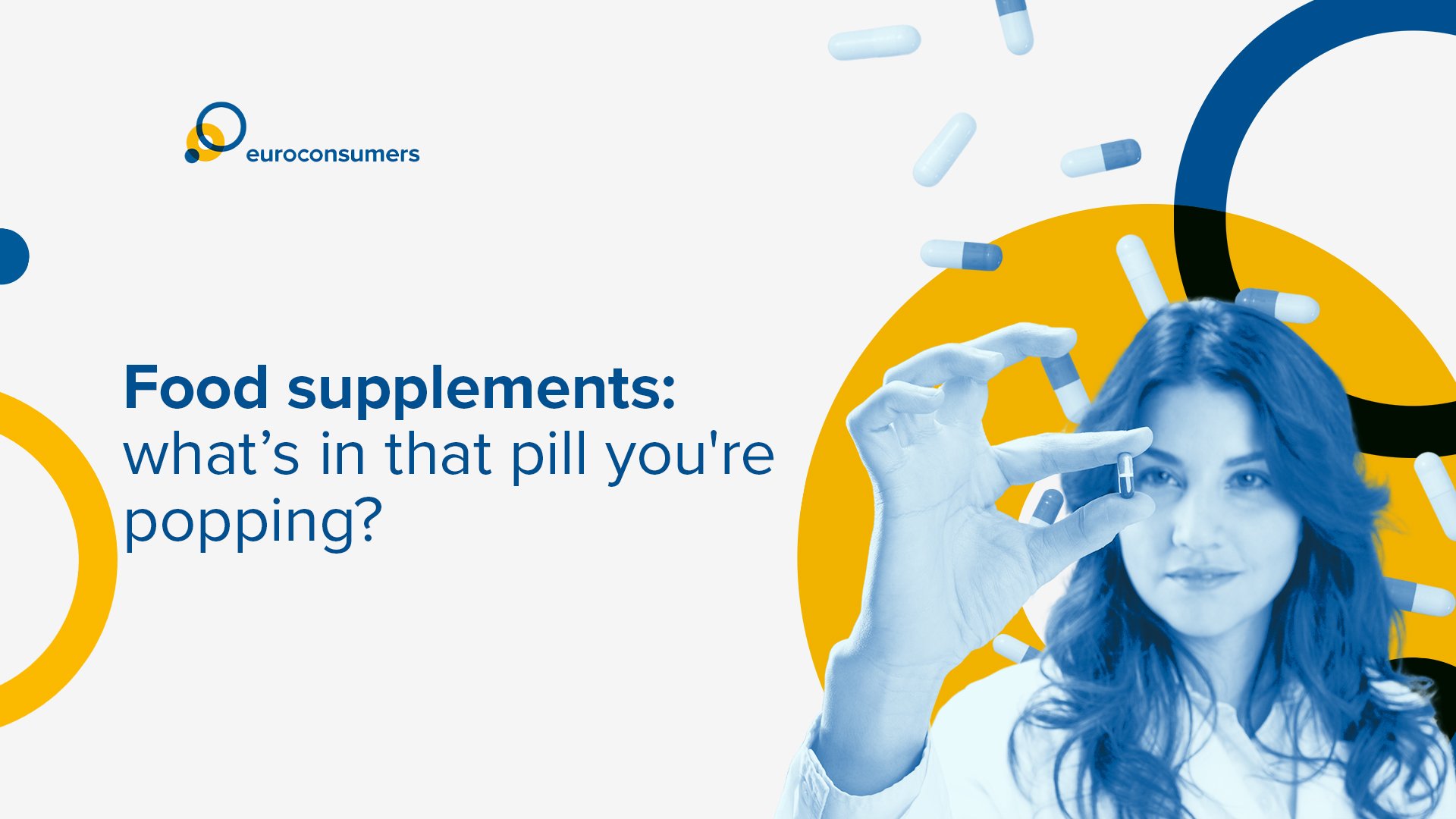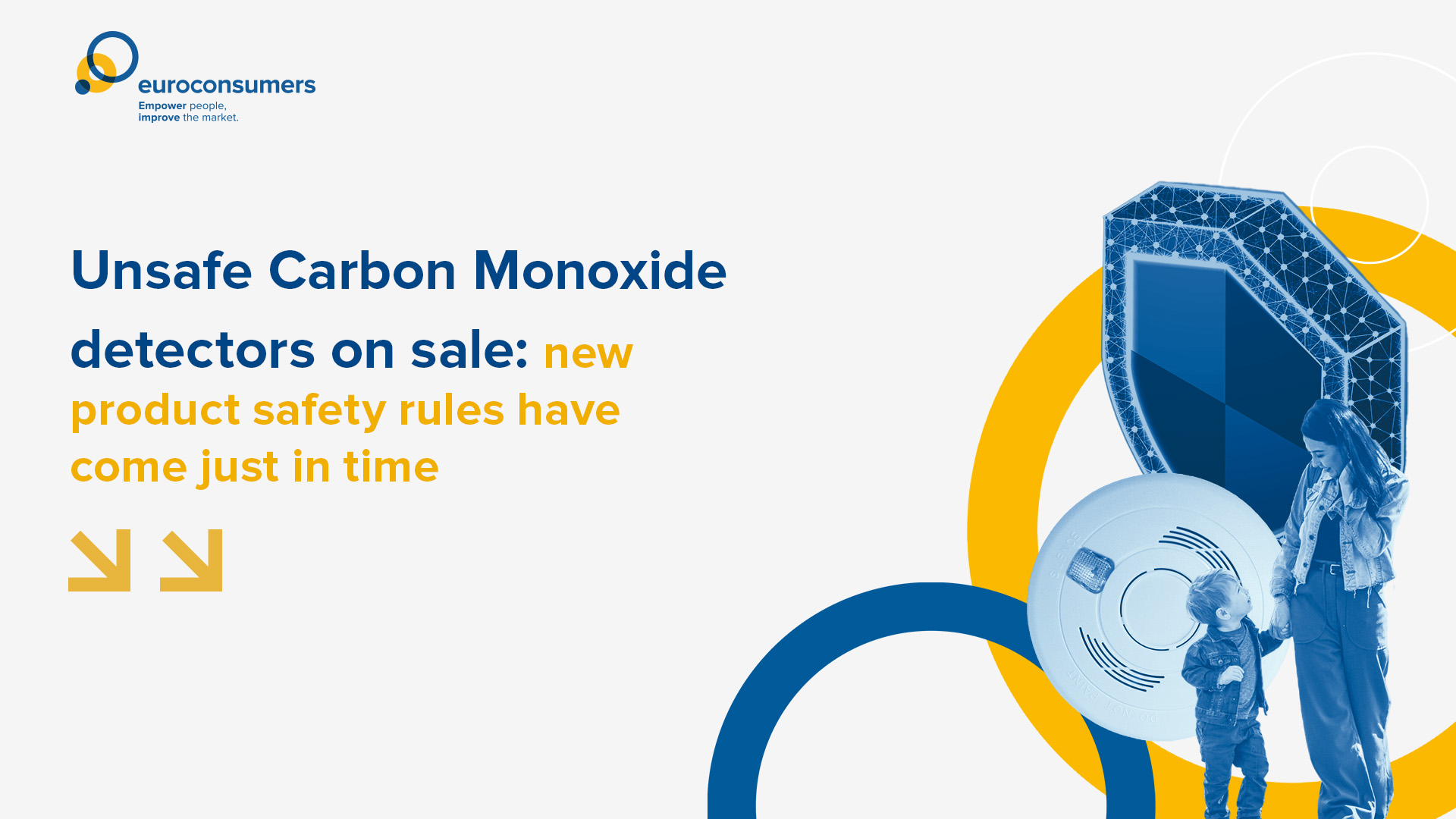
Food supplements: what’s in that pill you're popping?
New research from Euroconsumers Testachats/Testaankoop finds over half of people who take food supplements don't get any medical advice
Read More


New laws to ensure products on sale to consumers are safe wherever they buy them came into force on Friday 13 December 2024. The General Product Safety Regulation (GPSR) is now applicable to businesses and national market surveillance authorities and will cover safety in any non-food product.
It declares it illegal to introduce dangerous products into the European market, covers new safety challenges like cybersecurity and makes no distinction between rules for online and offline stores.
The results of our consumer organisations’ sampling and testing products for safety and security has helped in the campaign to update the 20 year old EU product rules and deliver this new regulation.
We wanted to see stronger protections which reflect the reality of the way people shop in digital marketplaces, and what they buy.
Since 2018, the Hackable Home testing programme has been monitoring and raising the alarm on some serious security vulnerabilities in common smart home devices.
Serious security flaws were found in video doorbells, robot vacuum cleaners, smart speakers and connected security cameras – many of them readily available at a low cost on online marketplaces.
Given the seriousness of the security flaws Euroconsumers’ members identified in common smart home devices, we are pleased to see that connected devices now must be ‘cybersecure’ to be deemed safe.
However, online marketplaces are not just selling unsafe connected devices as our Spanish member OCU discovered.
New safety tests on household Carbon Monoxide (CO) detectors by OCU on the day the GPSR went live showed exactly why new rules and stronger enforcement is required.
OCU analysed 9 Carbon Monoxide detectors for sale on familiar online platforms and stores including Aliexpress, Amazon, Secutek and Temu.
Eight out of the nine carbon monoxide detectors on sale did not pass the safety test. They were not able to detect levels of CO that could pose a risk to people.
These shocking results show the level of harm that consumers are exposed to when goods are not properly checked for safety.
CO detectors are not a ‘nice to have’ purchase – they are an essential tool designed to help people avoid the risk of breathing in poisonous fumes from malfunctioning stoves or boilers.
OCU has advised owners of these particular models to return them and request a refund. However, this advice won’t help everyone – because another major problem spotted by OCU was that the same model is available under many different brand names.
We bought two models sold under two different brands, they are identical and failed the test in exactly the same way. But the way the GPSR is set up now, if market surveillance authorities were to test and withdraw one from the market, there’s no way to link to the other identical model at the same time.
Antonio de la Torre, OCU
Consumers understandably assume that a product designed to protect people in their home, on sale in Europe will be safe to use and fit for purpose. The new GPSR has a lot of work to do to ensure that is the case.
The GPSR requirements for greater accountability of online platforms who host millions of third party traders on their marketplaces is particularly welcome. They now need to act much more quickly to remove unsafe products, a maximum of two days after being notified a dangerous is on sale on their platform. They are also obliged to have a single point of contact and cooperate with authorities, starting with the establishment of a single point of contact.
However, some big loopholes exist – there are no requirements to run checks on listed products before they are sold, only to remove unsafe ones when they are reported.
Product recalls are given proper attention too, recognising that identifying and remedying unsafe products is vital for consumer protection.
The new GPSR includes clearer processes, mandatory notices, and remedies like repair, exchange, or refunds to support consumers. However, as the OCU tests revealed, there are still serious loopholes regarding product models sold under different brands.
Overall, the set of requirements covers off a lot of our concerns, but a major shift will be required from all the institutions and companies, many of whom are now required to take more responsibility in the product supply chain.
Even more important is the joining up of the Digital Services Act, Digital Markets Act with General Product Safety legislation so that they can complement each other and enhance safety and monitoring.
If the new legislation is going to reduce the presence of dangerous products on the market, then surveillance of the European market needs urgent attention, and online platforms and stores need to get their house in order.
Els Bruggeman
The OCU carbon monoxide test results show there’s a long way to go. If we want these new measures to set a higher standard for product safety, ensuring better protection for all consumers in the EU, we urge manufacturers, platforms, traders and the authorities to step up, close loopholes and put consumer safety first.